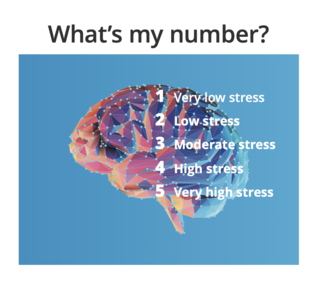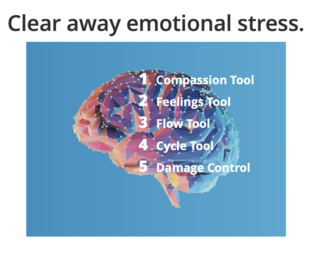Stress
Feeling Stress? Use the Power of Emotions to Cope
Instead of suppressing emotions, use them to your advantage.
Posted March 15, 2020 Reviewed by Hara Estroff Marano

With the pandemic of COVID-19, we are all awakening to the need to reset our approach to life. We may stay home more, eat in more often, bump elbows instead of giving hugs. However, the most important change in our lifestyle is how we stay resilient, boost immunity, and stay positive.
We have entered The Age of the Emotional Brain. This is the beginning of a new approach to our inner life based on the amazing power of emotional stress to change the chemicals throughout the body. Brain Based Health is a new approach to psychology and health based on how the brain actually processes stress, especially in the high-stress life of pandemics.
Most of us use cognitive methods to suppress emotions and clear our thoughts. Have you tried that lately? More research is showing that thinking is not enough in these high-stress times. When I try to reappraise my views, be mindfully aware or think positive thoughts, it's more and more challenging. That's because the thinking brain functions poorly in stress. Our hunter-gatherer's brain activates strong negative emotions, and the natural way to process life is to first express emotions, then after they are released, the thinking brain returns to functioning well, and we can move forward in life.
If instead, we suppress our emotions by trying to think effectively, it backfires. Emotional Brain Training (EBT) delivers a simple numbering system for emotional states, with 1 = very low stress to 5 = very high stress. You ask yourself, "What's my number?" and use the simple, structured emotional technique that mirrors the brain's natural emotional processing to return to emotional state 1. These tools conform to how a mother encodes emotional resilience in a baby, except we can apply them to ourselves. Once emotions have been cleared, the thinking brain is back online, and a simple take-action tool, and you clarify exactly what you are going to do and your higher purpose for doing it. The whole process takes an average of 3 minutes.

I woke up this morning feeling anxious about COVID-19, as my husband has health issues, and I have children who are grown and living far away, and in areas of high community spread of the virus. I used the EBT techniques and then went to talk with my husband. My body stopped feeling prickly with anxiety. This brain-based approach is to use psychological techniques and release emotions so that we can reduce stress and change ourselves biologically.
I am sad to say that although we have been developing EBT for more than 30 years, I did not think we would see the day when it was used for prevention more widely. It's time to adjust how we process life to clear away emotional stress and treat stress overload or stress eating with a simple structured and easy system. The most encouraging aspect of facing that we are now in the age of the emotional brain is that our brain is so powerful. It has all this untapped power to clear away stress, and it takes something like this—a pandemic—to motivate us to update not only our sanitation and exposure to the virus but to how we clear away emotional stress from our brain and body.
We are a nation of emotional suppressors, thinking too much and forcing ourselves to relax. The emotional brain has natural pathways to release that stress, and perhaps with the new pandemic, we can reset how we process our emotions and live our best lives.
References
Mitrovic, I., Fish dePena, L., Frassetto, L. A., & Mellin, L. (2011). Rewiring the stress response: A new paradigm for health care. Hypothesis 9(1), e1-e5.


